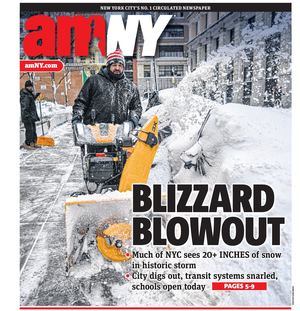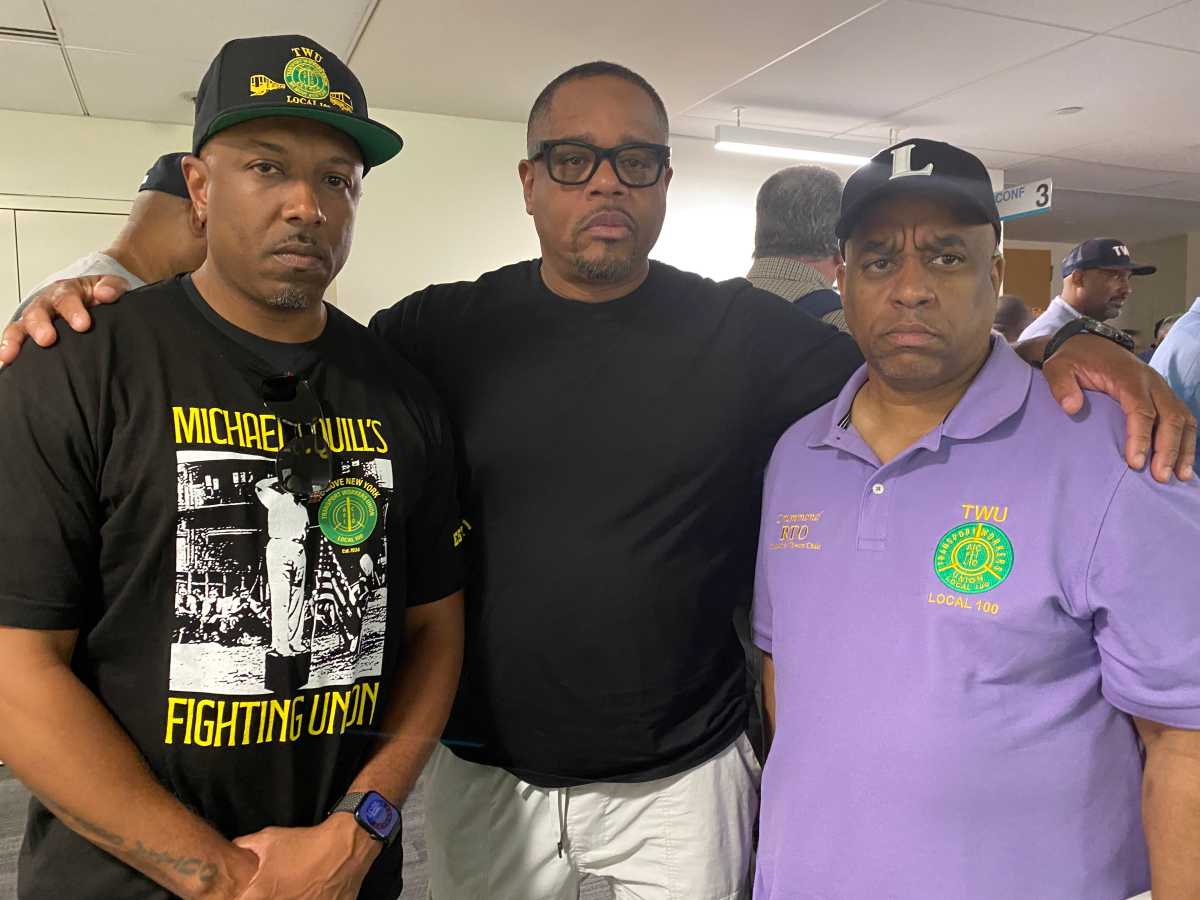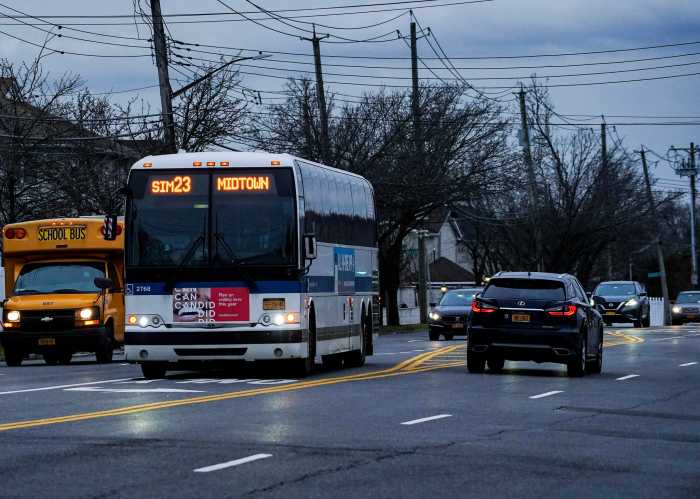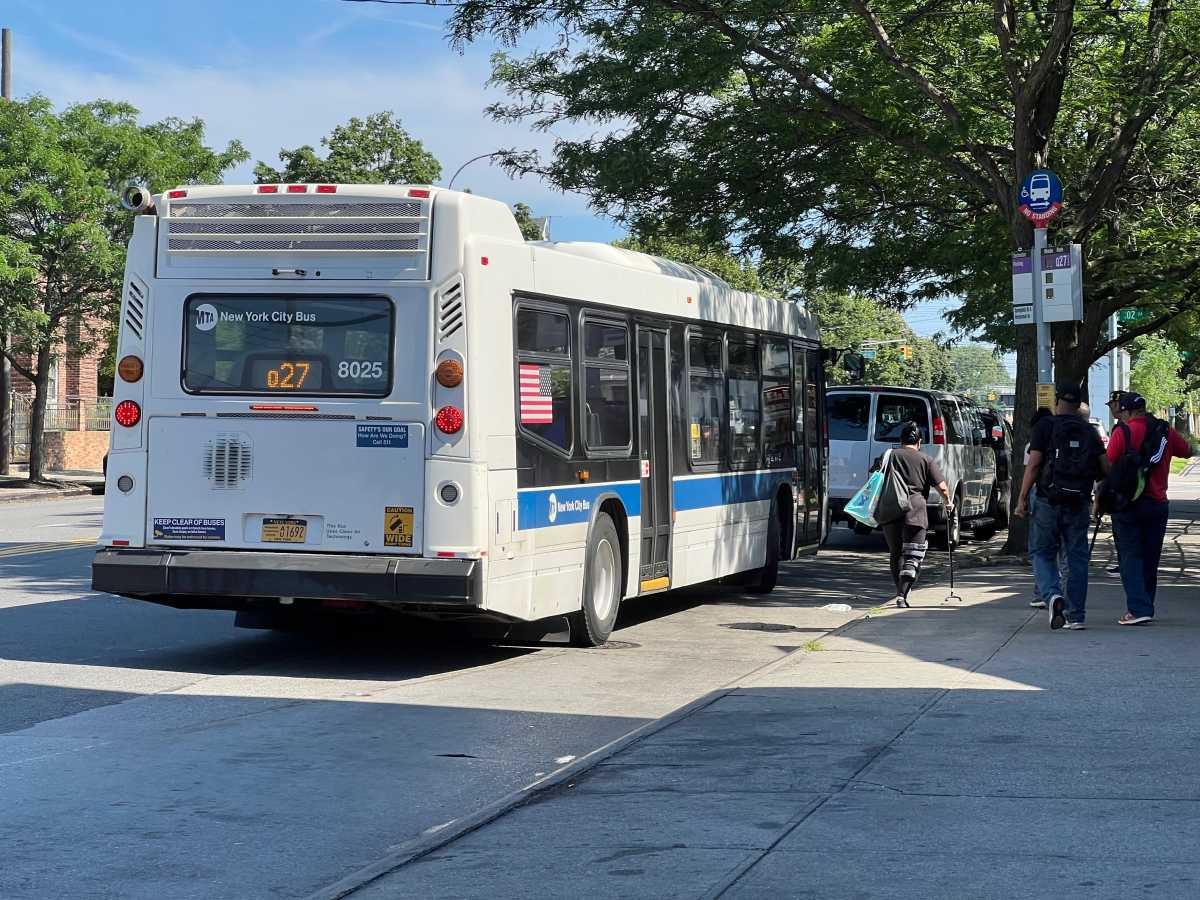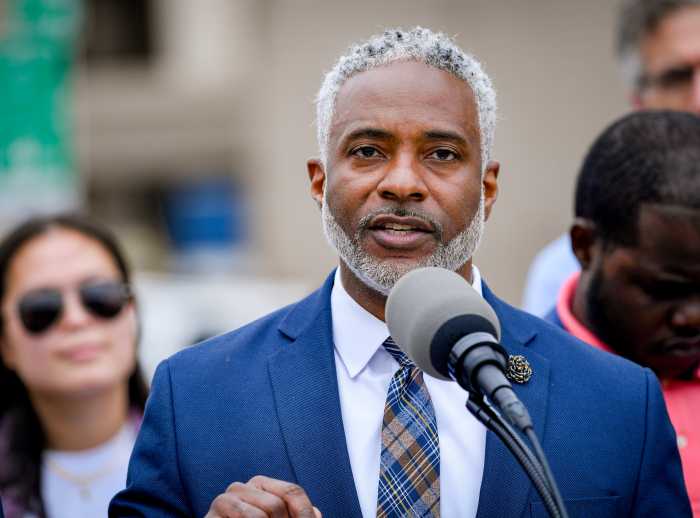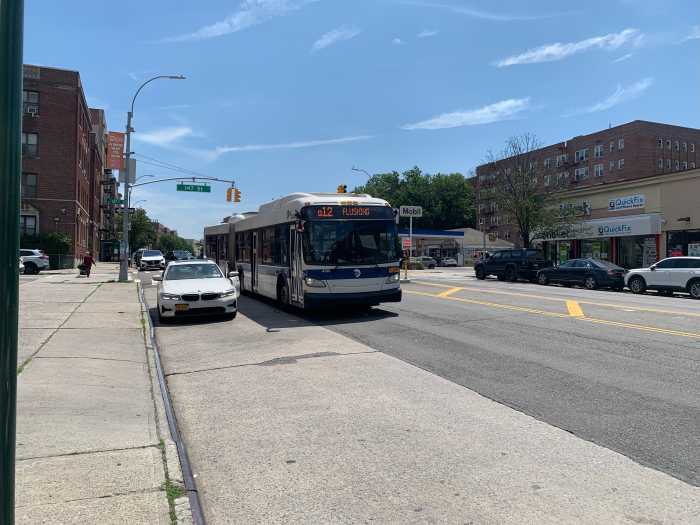After the MTA apparently blamed a computer glitch for delays in workers’ compensation claims, transit union reps demanded Wednesday that the agency do more to rectify the situation and issue timely payments.
Dozens of Transport Workers Union (TWU) Local 100 members and leaders flooded an MTA monthly board meeting on Wednesday, expressing anger, frustration and concern over missed or late payments.
In May, the MTA partnered with third-party administrator Sedgwick Claims Management Services to handle calls faster and track more claims in an effort to improve efficiency.
The union, however, said the opposite occurred.
Less than two months after the Sedgwick launch, according to leaders and members of Local 100, around 3,500 claimants began experiencing late payments, while many are still awaiting their money from the previous pay cycle.
A ‘half-baked’ idea
TWU Local 100 President John Chiarello did not hold back when he immediately blamed MTA chair and CEO Janno Lieber for outsourcing comp claims to a private agency — a move he called a “half-baked” idea.
“Janno Lieber has a soft spot for privatization, an affection he does not share with our members,” Chiarello said. “He has demonstrated it time and again by sending projects to outside contractors. In this case, he applied the same mentality to workers’ comp benefits with disastrous results.”
Some members have not been paid since June 6, including a veteran bus driver who put in decades of work before getting injured in the line of duty.
“Those in strategic initiatives who come up with these half-baked ideas keep screwing up,” Chiarello fumed. “Instead of getting fired, they go upwards and get moved and promoted into other positions.”
Midori Valdivia, an MTA board member, said it is “unacceptable” that employees have not been paid yet or have experienced late payments.
“This is something that requires board attention. It’s good we were notified,” she said. “Being a vendor for the MTA can sometimes be difficult because we are so big, but it’s pretty unacceptable. A good number of these people are so customer-oriented and New York-focused. These are tough jobs, and these folks are struggling potentially due to injury on duty.”
MTA: ‘We understand the gravity of this’
Meanwhile, Demetrius Crichlow, president of NYC Transit, said the MTA acknowledged the payment debacle.
“As with any changes, especially this large, we experienced early lessons on how we can work more efficiently with Sedgewick and our labor partners,” he said. “While approximately 11% to 35% of workers’ compensation recipients are eligible for differential payments from NYC Transit, we are still required to review every claim to determine eligibility.”
But a processing glitch during the transition to Sedgwick delayed payments during the last pay cycle.
“We understand the gravity of this,” Crichlow said. “Employees rely on their paychecks, and that break in pay can have lasting impacts on people. I understand the severity and have personally been engaged with our labor partners, and we’re looking to turn the tide on these delays.”
MTA officials said they are “holding Sedgwick accountable” and have demanded daily reports to track progress on “things that are supposed to be done.”
